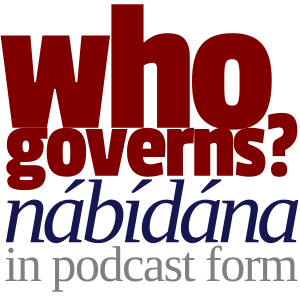On the day Lady Thatcher died, people in Dublin spoke to me with worry on their faces, as if I might spontaneously combust or ascend back to my starship. “Here is a man”, they probably thought, “who is upset about the death of someone I thought was a bit of a bitch.”
They were right. I was upset, as any reasonable human would be at the death of an old lady who had played such a central role in our society for the first years of my life. But I was upset in a disconnected fashion – she was Baroness Thatcher, Lady Thatcher, Margaret Thatcher, Maggie. For people as far removed from her as I was (and that’s pretty far removed – she had never been a Constituency Secretary) she stood as an icon, a power – a symbol of pure conservatism, blue in tooth and claw.
I saw her and her politics as the unattainable, lost cardinal of conservatism – the rare, elemental form which tarnishes readily when exposed to the air. Those who painted themselves as ‘thatcherite’ seemed destined to forever seek its rare essence through alchemy – as if mixing a harsh disrespect for the other with something vaguely right-of-centre and heating in an atmosphere of fear for the future would deposit crystals of Thatcherite, more chemically and politically stable than the gold standard, and, when viewed under the microscope, emitting a blue cerenkov glow.
These alchemists tended to turn up to parties in expensive suits and appalling shirts, with ties chosen to reflect something or other from the second world war. They wanted to be Mark Thatcher with better map reading skills. Not one of them could hold their whiskey like Margaret Thatcher.
They didn’t get the fucking point.
Margaret Thatcher’s politics were the politics of loyalty to her country. She had a vision of a nation where people were independent of the state so they wouldn’t be subject to the predations of the state. She had a vision for a people who understood their responsibilities as superior to their entitlements. She saw in the people a desire to be set free from other people telling them what to do – the unions, the civil servants, the politicians. She knew that the power of the Prime Minister to change the tone and the course of the nation’s history is immense – and she sought to use the power to the best of her ability.
Margaret Thatcher’s loyalty to her country was breathtaking. The Falklands War – which arguably couldn’t have come at a better (political) time, was the last popular war in the UK primarily because people knew it was right to do – and that the Prime Minister’s resolve and determination to stand up for the people in the South Atlantic spoke to how she would stand up for the UK’s interests.
When I was asked in the past whether I was a Thatcherite, I usually replied that I had immense respect for her, but I was closer in thinking to John Major, William Hague and David Cameron. The last ten days have allowed me to contemplate that more carefully. Major, Hague and Cameron’s political instincts are not so different from the late Baroness Thatcher’s – although their methodologies and presentation enormously differ. David Cameron’s stewardship today, cleaning up the mess of the overspending Labour administrations and taking responsibility for the mistakes of successive UK governments, is the legwork of a PM aware of his duty to put the national house in order. Very Thatcherite indeed, in my view.
When I look back on the history of the big decisions Margaret Thatcher had to take in leading my country, which all took place in my lifetime, I believe she made the right call on almost every one of them. Hindsight and progress, which tarnish every historic decision, make me wish she’d put some women into cabinet (nobody can tell me Virginia Bottomley wasn’t good enough) and that she’d done more thinking about the Community Charge.
Margaret Thatcher made the UK great again. She led the revolution which again gave citizens, not Trade Unions, control of their country. She stood up to terrorism and aggression and she brought Gorbachev in from the cold. She understood what she had to do, and she won the support of the people three times to do it.

